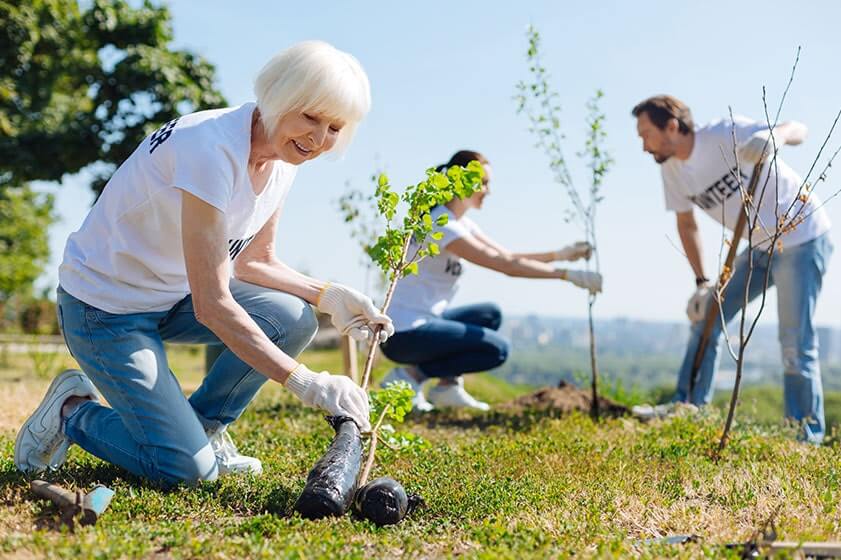Many elderly find it difficult to leave their homes due to the fear of losing independence and feeling lonely. Volunteering allows you to make a real difference in the lives of other older adults, helping them remain active and engaged with the world around them. Plus, volunteers benefit from the experience as well! See below some health benefits you can experience by volunteering.
It Benefits Your Brain
Several studies have suggested that altruistic behavior, or helping others in need, may positively affect health. Why? The likely explanation is that by focusing on others rather than ourselves, we’re less likely to dwell on our problems—and consequently, our minds are less likely to produce stress hormones. Research published in Psychological Science suggests that when people are asked to recall adverse events, they tend to release more stress hormones than when prompted with positive thoughts. By taking your mind off yourself and considering another person’s needs, you can reduce stress—and feel better not only mentally but also physically.
It Helps Keep You Healthy
If you’re looking for a fun and rewarding way to stay active, volunteering is a great option. According to an AARP study, 40 percent of the elderly who volunteer feel more physically fit, while 79 percent say it improves their overall health. Engaging in such activities may also promote your mental health by helping you meet new people and remain socially active.
It Provides Purpose and Meaning
After years of working, raising children, and taking care of family members, many elderly find themselves wondering what their sense of purpose is after entering retirement. Research indicates that having a sense of purpose is one way to help people lead happier lives. The satisfaction that comes from helping others is a bonus for volunteering since it serves as a reminder that even in old age, our time has value.
It Strengthens Social Bonds
Volunteering also gives aging adults a chance to spend time with other people who are important to them. The social interactions that come from volunteering can reduce loneliness and help your loved ones maintain healthy relationships into their later years.
It Confers a Sense of Control
Volunteering helps you feel empowered and in control. By doing something that matters to you, you’re directly improving other people’s lives while also making your own life better. If done correctly, volunteering can help you manage stress and anxiety.
It Makes You Feel More Time-Rich
Feeling more time-rich is one of the benefits you will enjoy most out of volunteering. If you feel like you don’t have enough time for yourself or that there isn’t enough time in a day to achieve anything, then why not get something done by helping others? The time spent will give you a renewed sense of energy and drive that will spill over into other areas in your life.
It Makes You Feel Good
Volunteering is one-way people can give back through community service. It makes them feel good knowing they are helping others, and at the same time, it keeps them feeling like a vital part of society (being active in their community). Through volunteering for organizations that help others, volunteers learn new skills, meet new people and renew their self-confidence. And who wouldn’t want that?





